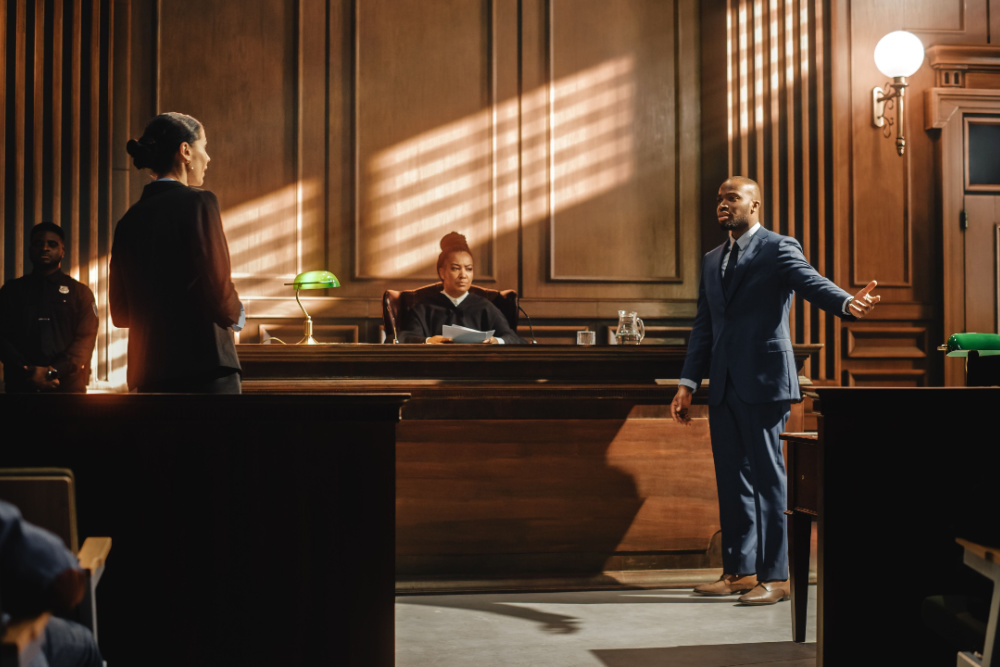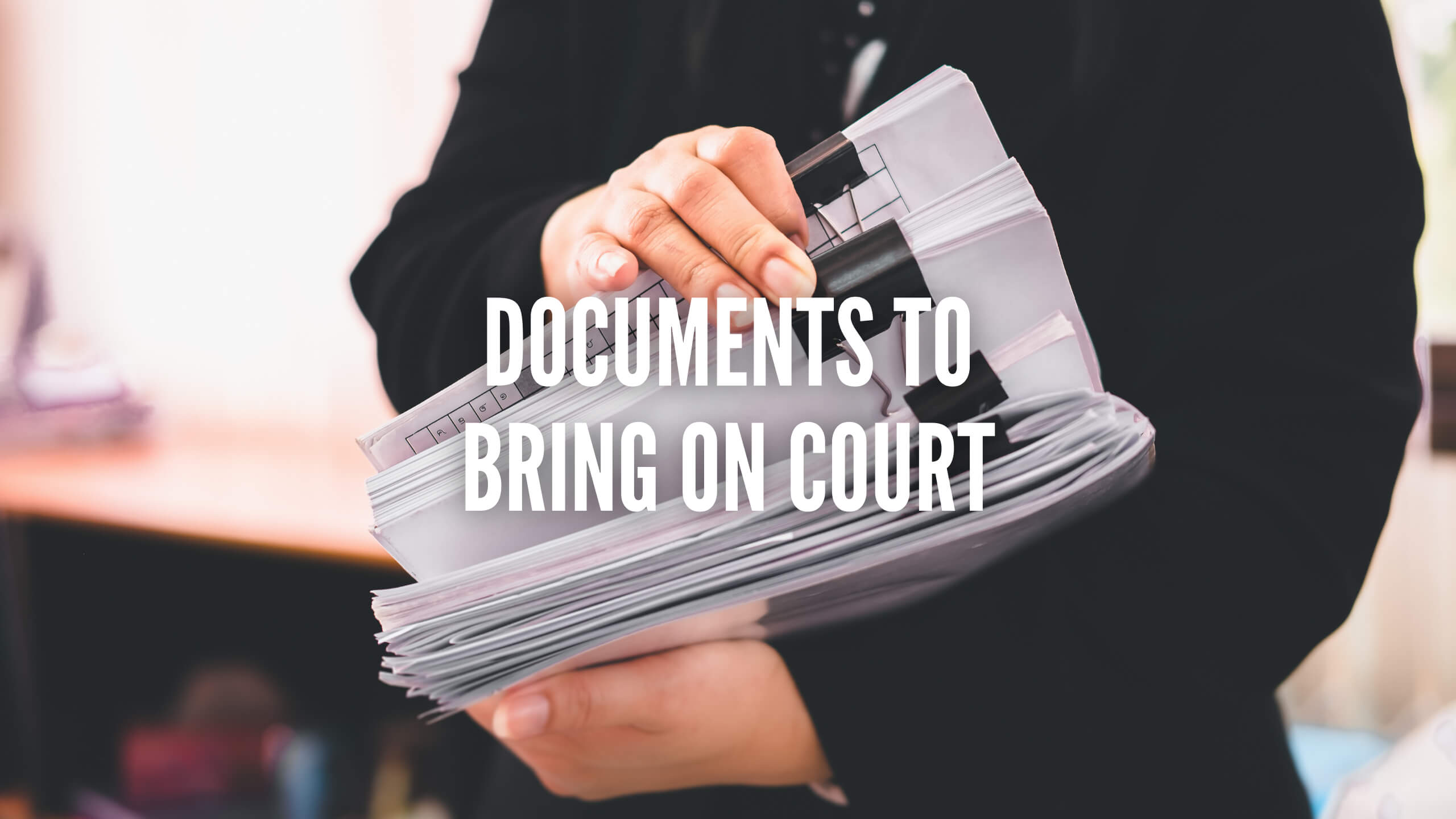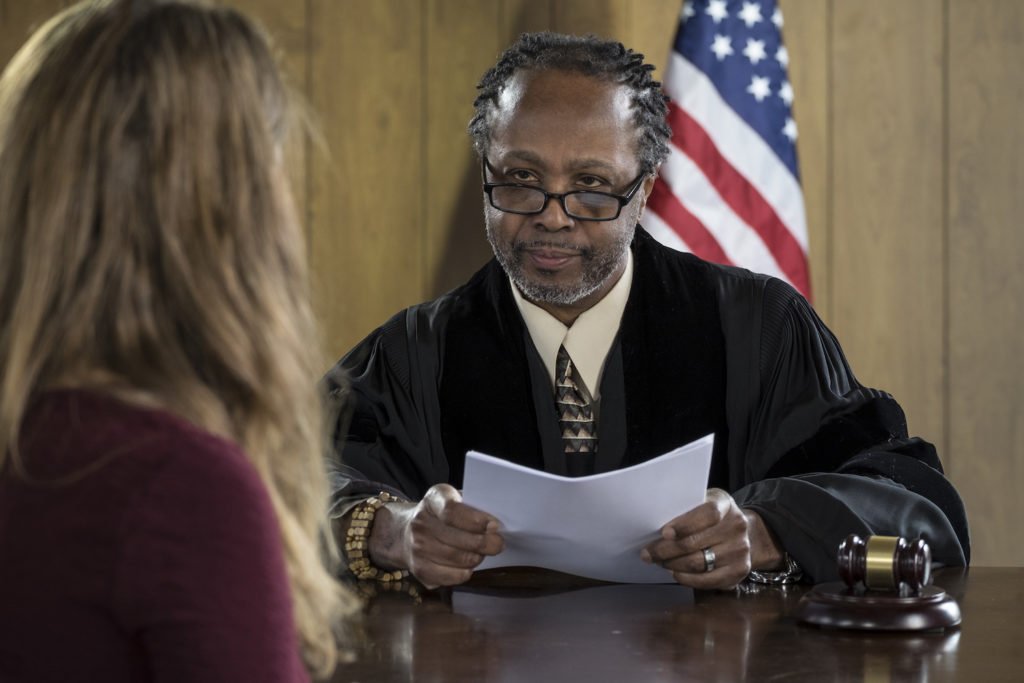If you’re asking yourself, what is a probation violation hearing for DWI, chances are you—or someone you care about—is facing a difficult and uncertain time. A probation violation hearing is not just a routine check-in with a judge; it’s a legal proceeding that can completely reshape the outcome of your original DWI sentence. Whether you missed a meeting, failed a drug test, or picked up a new charge, this hearing determines what happens next—and the consequences can be severe.
In this comprehensive guide, we’ll break down exactly how a DWI probation violation hearing works, what’s typically at stake, and how you can prepare for the process. From courtroom strategy to real-life missteps, this article aims to give you both clarity and confidence when navigating a probation violation.

What Is a Probation Violation Hearing for DWI?
A probation violation hearing for DWI is a court proceeding where a judge evaluates whether someone on probation for a DWI offense has failed to comply with the terms of their probation order. If the court finds a violation occurred, it has the power to revoke probation, impose stricter conditions, or even sentence the person to jail or prison.
Probation is often offered as an alternative to incarceration. But it comes with strict conditions—things like reporting to a probation officer, attending DWI education classes, maintaining sobriety, submitting to random testing, and avoiding new criminal offenses. Breaking any of these rules can trigger a violation and lead to a formal hearing.
Real-Life Example: One Missed Test, Big Consequences
James, a 35-year-old electrician in Houston, was placed on two years’ probation after a second DWI conviction. He was doing well—holding down his job, attending classes, and staying clean. But one missed drug test during a family emergency triggered a probation violation report. Even though it wasn’t a dirty test, just missing it was enough to require a hearing. He had to appear in court and prove he wasn’t avoiding the test intentionally. It was a wake-up call: even minor lapses can have major consequences.
Types of Violations That Trigger a Hearing
Not every slip-up leads to a probation violation hearing, but many do. Courts take DWI probation seriously because it’s meant to monitor and reform behavior considered dangerous to public safety. Violations fall into two main categories: technical and substantive.
Technical Violations
These involve non-criminal breaches of probation rules. Common examples include:
- Failing to attend mandatory DWI classes or counseling
- Missing a scheduled appointment with your probation officer
- Failing to submit a urine or breath test
- Missing a community service deadline
- Traveling out of state without permission
Though these may seem minor, repeated or willful technical violations often lead to a formal hearing.
Substantive Violations
These occur when a person on probation is arrested or charged with a new offense. For someone on DWI probation, this could mean:
- Getting another DWI
- Driving without a license
- Committing any other criminal act
- Possessing alcohol or illegal substances

Substantive violations are treated much more harshly than technical ones. In many cases, even an arrest without a conviction can trigger a hearing and potential revocation of probation.
The Legal Process: What Happens During a DWI Probation Violation Hearing?
Understanding what is a probation violation hearing for DWI also means knowing how the hearing unfolds. It’s not the same as a criminal trial, but it does follow a structured legal process.
Step 1: The Violation Report
Probation officers monitor your compliance and are required to report any violations to the court. The report outlines the alleged violation, supporting evidence, and the officer’s recommendation for how to proceed.
Step 2: Arrest or Summons
In some cases, the judge will issue a warrant for your arrest. In others, you may receive a court summons to appear for the hearing. How this plays out often depends on the seriousness of the alleged violation.
Step 3: The Hearing
The probation violation hearing takes place before a judge. Unlike a criminal trial, there’s no jury. The prosecutor presents evidence of the violation, and you—or your attorney—can present a defense. The burden of proof is also lower. Instead of “beyond a reasonable doubt,” the standard is typically “preponderance of the evidence.”
At this stage, the judge can:
- Find that no violation occurred and reinstate probation as-is
- Modify probation conditions (for example, add electronic monitoring)
- Extend the term of probation
- Revoke probation and impose the original suspended jail sentence
Real-Life Example: How Attitude Helped One Defendant
Lena, a 28-year-old college student on DWI probation, was called to a violation hearing for skipping several Alcoholics Anonymous meetings. With her attorney’s help, she gathered proof of full-time work and a class schedule that conflicted with her original AA times. She also started attending make-up meetings on her own. The judge took her initiative into account and let her continue probation with revised meeting times.
What Are the Possible Outcomes?
The outcome of a DWI probation violation hearing depends heavily on the nature of the violation, your previous record, your compliance history, and how well you (and your attorney) present your case.
Best-Case Scenarios
- Warning and Continued Probation: The judge gives you a pass with a warning.
- Probation Modification: You keep your probation but with added requirements or stricter monitoring.
- Reinstatement with Sanctions: You’re penalized—perhaps with extra community service or a short jail stay—but remain on probation.
Worst-Case Scenarios
- Revocation and Jail: The judge revokes your probation and imposes the original jail sentence.
- Extended Probation: Your probation period is lengthened with new conditions.
- Additional Charges: If the violation involved a new crime, you might face new criminal charges on top of probation issues.
How to Defend Yourself in a DWI Probation Violation Hearing
If you’re facing a violation hearing, taking proactive steps can make a massive difference. It’s not about being perfect—it’s about showing responsibility and a willingness to follow the rules going forward.
Hire an Attorney Who Knows DWI Law
Don’t assume you can handle a probation violation hearing on your own. An experienced criminal defense attorney—especially one with a track record in DWI cases—knows how to challenge weak evidence, highlight mitigating circumstances, and propose constructive alternatives to jail.
Bring Documentation
Whether it’s proof of counseling sessions, work schedules, or receipts from court-ordered classes, documentation matters. The more evidence you have to back up your explanation, the stronger your defense will be.

Show Remorse and Responsibility
Judges respond better to honesty and accountability. If you missed a test or appointment, explain why—and show what you’ve done to fix it. Taking initiative shows you’re serious about completing probation.
Enroll in Voluntary Programs
If alcohol or drug use contributed to the violation, voluntarily enrolling in a treatment program can help your case. It shows the court you’re committed to change, not just compliance.
Why These Hearings Matter More Than You Think
Understanding what is a probation violation hearing for DWI means recognizing how much is truly at stake. If your probation is revoked, you could serve time behind bars—even if your original offense never resulted in jail. That’s not just a legal setback; it can affect your job, relationships, and reputation.
These hearings also create a permanent record. Even if you’re allowed to continue probation, the fact that you violated it will remain on file. That could influence future court decisions or background checks.
Real-Life Example: A Second Chance Earned
Marcus, a 40-year-old mechanic, violated his DWI probation by failing to report a job change to his probation officer. He was working longer hours and didn’t realize he had to notify the office within 48 hours. At the hearing, he came prepared with pay stubs, a letter from his employer, and completed all outstanding classes. The judge appreciated his effort and reinstated probation with a clear warning—no further mistakes.
What Judges Look for in a Violation Hearing
Every judge has a different style, but most look at the same key factors when deciding how to handle a DWI probation violation:
- Was the violation minor or major?
- Was it willful or accidental?
- Has the defendant made progress otherwise?
- Is this the first violation or part of a pattern?
- Is the person likely to reoffend?
Judges don’t expect perfection—but they do expect effort. Show up prepared, respectful, and ready to explain how you plan to stay on track.

What to Expect at a DWI Probation Violation Hearing
If you’ve made it this far, you now understand what a probation violation hearing for DWI involves—and just how serious it can be. But you also know it’s not the end of the road. People make mistakes. What matters most is how you respond when the court gives you a chance to course correct.
Take the hearing seriously. Build a strong defense. And use this moment to not only avoid jail—but to take meaningful steps toward long-term change.
Whether you’re representing yourself, supporting a loved one, or guiding a client through the process, the key to surviving a DWI probation violation hearing is preparation, honesty, and the willingness to take control of your future.

